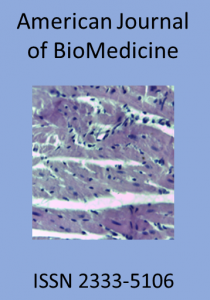Abstract
Patients with colorectal cancer (CRC) possess a poor prognosis due to high rates of recurrence and metastasis. Although mechanisms of CRC tumorigenesis have been extensively studied, the pathogenesis of the disease is still not fully understood. Thus, further investigation on mechanisms involved in CRC occurrence is urgently needed. Genetic mutation, particularly alteration of tumor suppressors, is one of the most important early events in colorectal cancer (CRC) tumorigenesis. Besides, gene silencing via hypermethylation also plays a pivotal role. Emerging evidence has indicated that altered expression of membrane proteins (MPs) is intimately involved in tumorigenesis, but their role in CRC is largely unexplored. Stomatin-like protein 2 (SLP-2) is one of the best-characterized MPs. SLP-2 functions as a chaperone-like protein in early mitochondrial biogenesis and assembly of the respiratory chain complexes. SLP-2 was localized to the inner mitochondrial membrane, where it exerts important roles in regulating mitochondrial morphology and biogenesis, but its role in tumorigenesis remains unknown. Emerging evidence has demonstrated that alteration of mitochondrial dynamics is closely linked with tumorigenesis. Mitochondria exhibit highly dynamic morphology characterized by a continual process of fission and fusion. Accumulating findings indicate that mitochondrial dynamics are aberrant in different cancers. Aberrant fusion is detected in many cancers, while dysregulated fission is more associated with specific types of cancers. This study examined the role of SLP-2 in CRC tumorigenesis via alteration of TGF-β1/Smad4 signaling. SLP-2 expression was significantly reduced in CRC tissues, and its downregulation was associated with poor prognosis. Using gain- and loss-of-function methods, it was demonstrated that SLP-2 plays an essential role in inhibiting CRC cell migration and invasion in vitro and in vivo. Further studies revealed that SLP-2 suppressed TGF-β1-induced epithelial-mesenchymal transition and CRC cell invasion and migration by modulating the stability of Smad4.
Keywords: Colorectal cancer; SLP-2; transforming growth factor-β; Smad 4; Immunohistochemistry
Copyright © 2016 by The American Society for BioMedicine and BM-Publisher, Inc.
References
- Parkin DM, Bray F, Ferlay J, Pisani P. Global cancer statistics, 2002. CA Cancer J. Clin 2005; 55:74–108. [Google Scholar]
- Roman C, Saha D, Beauchamp R. TGF-beta and colorectal carcinogenesis. Microsc. Res. Tech 2001;52:450-457. [CrossRef]
- Zebing Liu, Yu Yang, Youyuan Zhang, Xuanguang Ye, Li Wang, Guoxiong Xu. Stomatin-like protein 2 is associated with the clinicopathological features of human papillary thyroid cancer and is regulated by TGF-β in thyroid cancer cells. Stomatin-like protein 2 is associated with the clinicopathological features of human papillary thyroid cancer and is regulated by TGF-β in thyroid cancer cells." Oncology Reports Oncology Reports 2014; 31(1):153-160. [Abstract/Full-Text]
- Takayama T, Miyanishi K, Hayashi T, Sato Y, Niitsu Y. Colorectal cancer: genetics of development and metastasis. J. Gastroenterol 2006;41:185-192. [CrossRef]
- Elliott RL, Blobe GC. Role of transforming growth factor beta in human cancer. J. Clin. Oncol 2005; 23:2078-2093. [PubMed]
- Xie W, Mertens JC, Reiss DJ, Rimm DL, Camp RL, Haffty BG, Reiss M. Alterations of Smad signaling in human breast carcinoma are associated with poor outcome: A tissue microarray study. Cancer Res 2002;62:497-505. [PubMed]
- Wang Y, Morrow JS. Identification and characterization of human SLP-2, a novel homologue of stomatin (Band 7.2b) present in erythrocytes and other tissues. J Biol Chem 2000;275:8062–71. [Abstract/FREE Full Text]
- Ghellal A, Li C, Hayes M, et al: Prognostic significance of TGF beta 1 and TGF beta 3 in human breast carcinoma. Anticancer Res 2000; 20:4413-4418. [Medline]
- Zhang LY, Ding F, Liu ZM, Li WD, Liu ZH, Li YD. Effect of stomatin-like protein 2 (SLP-2) gene on growth and proliferation esophageal squamous cell carcinoma cell line TE12. Ai Zheng 2005; 24:155–9. [Medline]
- Boivin GP, Washington K, Yang K, Ward JM, Pretlow TP, Russell R, Besselsen DG, Godfrey VL, Doetschman T, Dove WF, et al. Pathology of mouse models of intestinal cancer: consensus report and recommendations. Gastroenterology 2003;124:762-777. [CrossRef]
- Alberici P., Jagmohan-Changur S., De Pater E., Van Der Valk M., Smits R., Hohenstein P., Fodde R. Smad4 haploinsufficiency in mouse models for intestinal cancer. Oncogene 2006; 25:1841-1851. [CrossRef]
- Zhang LY, Ding F, Liu ZM, Li WD, Liu ZH, Li YD. Effect of stomatin-like protein 2 (SLP-2) gene on growth and proliferation esophageal squamous cell carcinoma cell line TE12. Ai Zheng 2005; 24:155–9. [Medline]
- Logan CY, Nusse R. The Wnt signaling pathway in development and disease. Annu Rev Cell Dev Biol 2004; 20: 781–810. [CrossRefMedline]
- Goss KH, Groden J. Biology of the adenomatous polyposis coli tumor suppressor. J Clin Oncol 2000;18: 1967–79. [Abstract/FREE Full Text]
- Giles RH, van Es JH, Clevers H. Caught up in a Wnt storm: Wnt signaling in cancer. Biochim Biophys Acta 2003; 1653: 1–24. [Medline]
- Hamamoto T, Beppu H, Okada H, et al. Compound disruption of Smad2 accelerates malignant progression of intestinal tumors in Apc knockout mice. Cancer Res 2002; 62: 5955–61. [Abstract/FREE Full Text]
- Liu F. Receptor-regulated Smads in TGF-β signaling. Front Biosci 2003; 8: s1280–303. [Medline]
- Han SU, Kim HT, Seong do H, et al. Loss of the Smad3 expression increases susceptibility to tumorigenicity in human gastric cancer. Oncogene 2004;23:1333–41. [CrossRef]
- Mishra L, Shetty K, Tang Y, Stuart A, Byers SW. The role of TGF-β and Wnt signaling in gastrointestinal stem cells and cancer. Oncogene 2005; 24: 5775–89. [CrossRef]
- Zhu P, Martin E, Mengwasser J, Schlag P, Janssen KP, Gottlicher M. Induction of HDAC2 expression upon loss of APC in colorectal tumorigenesis. Cancer Cell 2004; 5:455-463. [CrossRefMedline]
- Yang J, Wu J, Tan C, Klein PS. PP2A:B56ϵ is required for Wnt/β-catenin signaling during embryonic development. Development 2003;30:5569-5578. [Abstract/FREE Full Text]
- Wong HC, Bourdelas A, Krauss A, Lee HJ, Shao Y, Wu D, Mlodzik M, Shi DL, Zheng J. Direct binding of the PDZ domain of Dishevelled to a conserved internal sequence in the C-terminal region of Frizzled. Mol. Cell 2003; 12: 1251-1260. [CrossRefMedline]
- Townsley FM, Cliffe A, Bienz M. Pygopus and Legless target Armadillo/β-catenin to the nucleus to enable its transcriptional co-activator function. Nat. Cell Biol. 2004; 6: 626-633. [CrossRef]
- Suzuki H, Watkins, DN, Jair KW, Schuebel KE, Markowitz SD, Dong CW, Pretlow TP, Yang B, Akiyama Y, Van Engeland M, et al. Epigenetic inactivation of SFRP genes allows constitutive WNT signaling in colorectal cancer. Nat. Genet 2004; 36: 417-422. [CrossRef]
- Yousif NG. Fibronectin promotes migration and invasion of ovarian cancer cells through upregulation of FAK–PI3K/Akt pathway. Cell biology international 2013; 38 (1), 85-91. [Abstract/Full-Text]
- Bandeira MH, Ribeiro CT. Myc protein: function, pathway and mutation. American journal of BioMedicine 2014; 2(2): 156–169. [Abstract]
- Schonhoff SE, Giel-Moloney M, Leiter AB. Minireview: Development and differentiation of gut endocrine cells. Endocrinology 2004; 145: 2639-2644. [CrossRef]
- Itzkowitz SH, Yio X. Inflammation and cancer IV. Colorectal cancer in inflammatory bowel disease: the role of inflammation. Am J Physiol Gastrointest Liver Physiol. 2004;287:G7–17. [PubMed]
- Knupfer H, Preiss R. Serum interleukin-6 levels in colorectal cancer patients–a summary of published results. Int. J. Colorectal Dis 2009;25:135–140.[PubMed]
- Chan AT, Giovannucci EL, Meyerhardt JA, Schernhammer ES, Wu K, Fuchs CS. Aspirin dose and duration of use and risk of colorectal cancer in men. Gastroenterology 2008;134:21–28. [PubMed]
- Chulada PC, Thompson MB, Mahler JF, Doyle CM, Gaul BW, Lee C, Tiano HF, Morham SG, Smithies O, Langenbach R. Genetic disruption of Ptgs-1, as well as Ptgs-2, reduces intestinal tumorigenesis in Min mice. Cancer Res 2000;60:4705–4708. [PubMed]
- Kim BG, Li C, Qiao W, Mamura M, Kasprzak B, Anver M, et al. Smad4 signalling in T cells is required for suppression of gastrointestinal cancer. Nature 2006;441:1015–9. [PubMed]
How to cite this article
Lazenby D, Chen K, Zhang R, Ge J, Liang G, Liu M, Shie D. Role of stomatin-like protein 2 in colorectal cancer tumorigenesis via alteration of TGF-β1/Smad4 signaling. American Journal of BioMedicine 2016;4(2):70-90
Research article
1. Abstract
2. Keywords
3. Introduction
5. Results
6. Discussion
7. References




